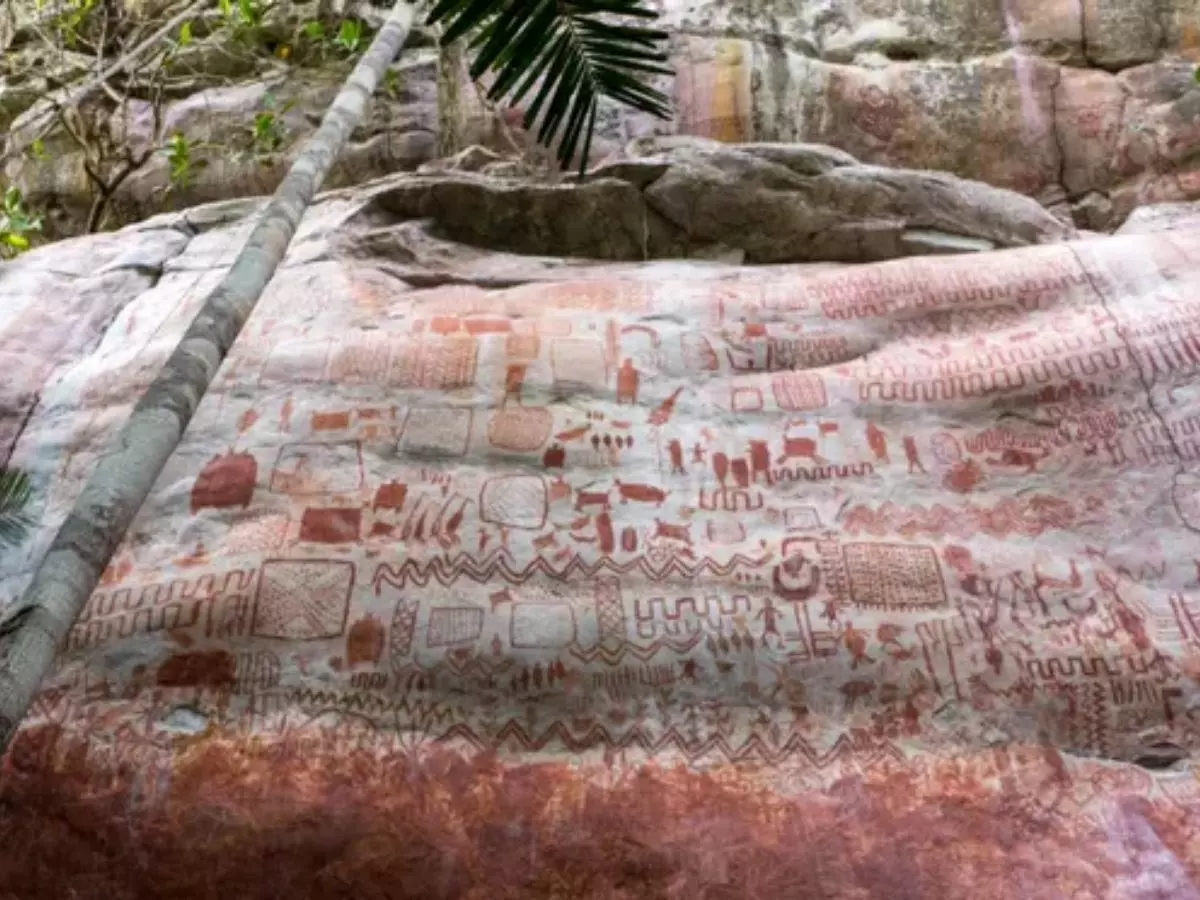Amazing 12,500 Year Old Paintings Discovered, Deep Inside The Amazon Rainforests
The painting comprises of animals that have been extinct since a long time -- animals like the mastodon, palaeolama as well as horses from the ice age.

Researchers have discovered eight-mile-long prehistoric rock art in the Amazonian rainforest, dating back to roughly 12,500 years ago.
 Photograph: Marie-Claire Thomas/Wild Blue Media
Photograph: Marie-Claire Thomas/Wild Blue Media
This prehistoric masterpiece was uncovered on cliff face last year in the Chiribiquete National Park, Colombia, by a British-Colombian team of archaeologists funded by the European Research Council.
Reported first by the Observer, the painting comprises of animals that have been extinct since a long time -- animals like the mastodon, palaeolama as well as horses from the ice age. The painting also consists of handprints of humans, which researchers believe belong to the descends of the first Siberian wave of migrants -- the ones who crossed the Bering Land Bridge roughly 17,000 years ago.
 Photograph: Marie-Claire Thomas/Wild Blue Media
Photograph: Marie-Claire Thomas/Wild Blue Media
While researchers don¡¯t have a clear idea as to who created these masterpieces, they believe it is the Yanomami tribe and the Kayapo tribe, since they¡¯re the only ones who¡¯ve been in the region for thousands of years.
What¡¯s fascinating is that the painting has been made on a relatively higher space, which at first glance astonished the researchers. However, observing the paintings, they discovered that they¡¯ve drawn depictions of what looks like wooden towers, which somewhat explain how they were able to climb so high.
The research was led by professor of archaeology at Exeter University, Jose Iriarte. She said in a statement to the Observer, ¡°When you're there, your emotions flow, We're talking about several tens of thousands of paintings. It's going to take generations to record them. Every turn you do, it's a new wall of paintings.¡±
 Photograph: Marie-Claire Thomas/Wild Blue Media
Photograph: Marie-Claire Thomas/Wild Blue Media
He added, ¡°We started seeing animals that are now extinct. The pictures are so natural and so well made that we have few doubts that you're looking at a horse, for example. The ice-age horse had a wild, heavy face. It's so detailed, we can even see the horsehair. It's fascinating.¡±
